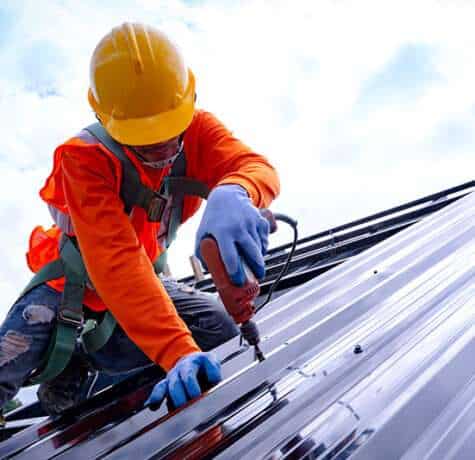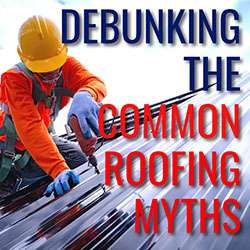The roof is as important as the walls and floor of your home. As such, you must choose the best material for your roof as you don’t want to compromise on its integrity and strength. Unfortunately, there are many common misconceptions about roofing repair and replacement that many people believe to be accurate and end up making bad decisions.

Common Roofing Myths Debunked
- A New Roof Over an Existing One Can Save You Money
You might have planned to install new shingles over your old roof to save some money. It’s time you rethink and change your decision, or you might spend a lot rectifying your mistake. The new roof layer would put a massive weight on the old one, damaging the whole structure of the roof. Because of the degraded roof layer beneath, it’s unlikely for the new shingles to prevent moisture damage. A professional contractor would detect if minor repairs would fix the damage or a complete roof replacement is the only solution.
- Metal Roofing Makes Your Home Hotter
The good heat conduction property of metal roofs isn’t the only factor that sets your home’s temperature. Another factor that holds prime importance is the insulation layer in your attic. Proper insulation prevents hot air and reduces the heat from entering the home. So, whatever the material is, your roof’s insulation has to be professionally done.
- Metal Roofs Prevent Ice Formation
It’s the roof’s insulation and ventilation and not the shingles that are responsible for preventing ice formation. When your attic has proper ventilation, the heat rising towards the roof can help melt away the ice dams. The roof gutter’s size and slope also determine the intensity of ice formation.
- No Leak is a Sign of a Well-Maintained Roof
The assumption that only a leak from the roof is a sign of damage is not valid. It could be too late by then to ask for a repair, and only roof replacement would be the solution. Roof damage can occur even without any leaks, and you wouldn’t see it coming unless you get it checked by a professional. You should arrange a roof inspection for your house before possible damages to the structural components. Ignoring this factor can lead to costly repairs and even roof replacement.
- New Roofs Don’t Need Frequent Inspection
New roofs require annual inspections like the older ones because they’re also prone to damage or leaks. The roof might need repair after an extreme weather condition or if it was improperly installed in the first place. You should not wait for the signs of wear and tear to ask for an expert’s help. In fact, the life span of new roofs could be prolonged if checked on time.

